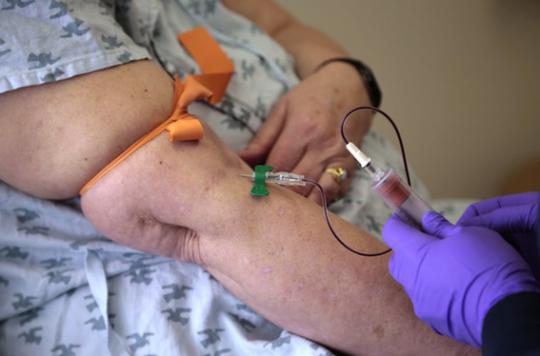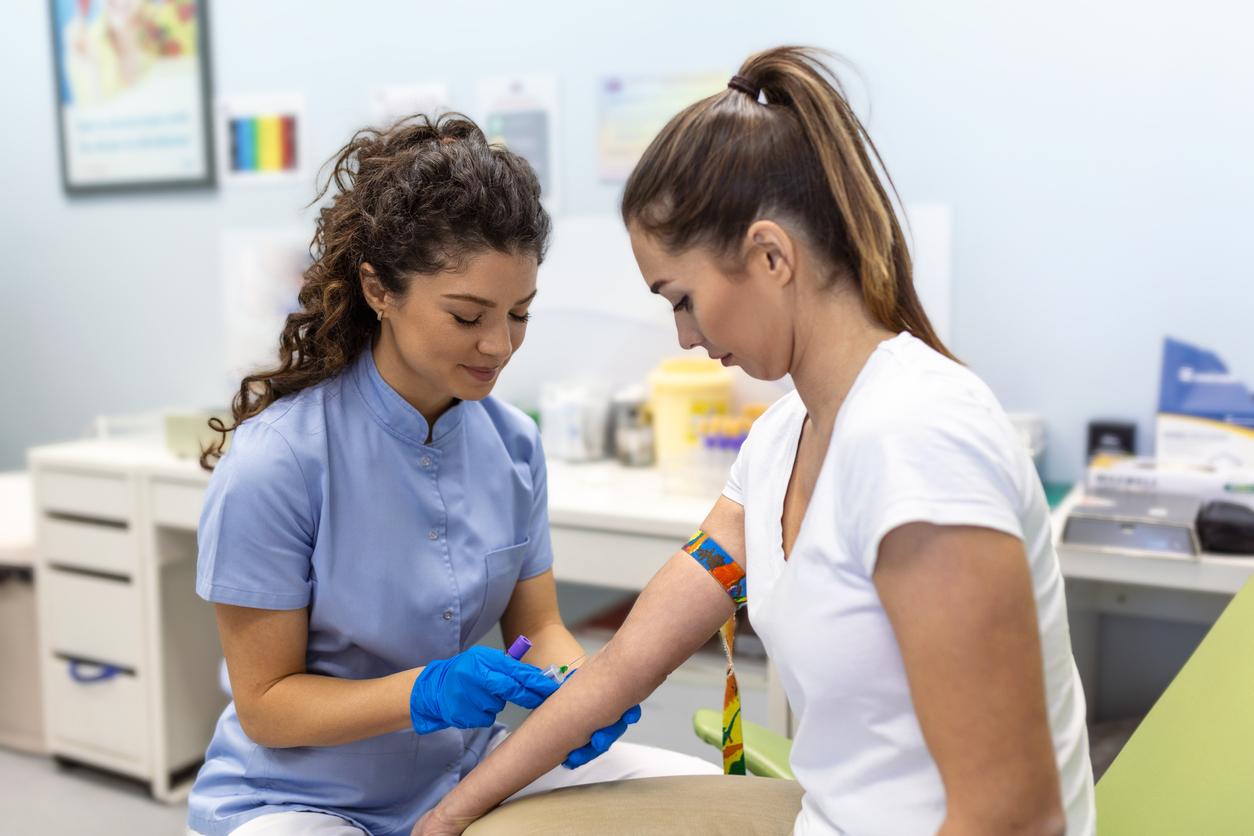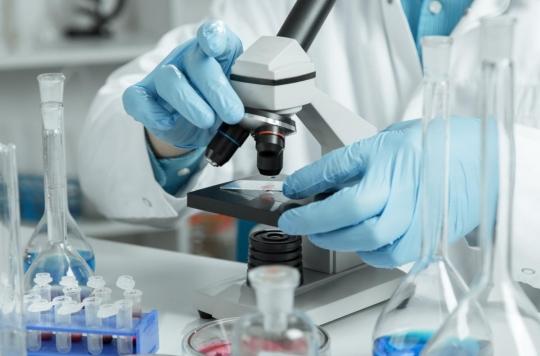American researchers have discovered a common marker for 5 different types of cancer, detectable with a simple blood test.

A single blood sample would detect 5 different types of cancer. American researchers from the National Institutes of Health (NIH) and the National Human Genome Research Institute have indeed discovered a common “signature” in the DNA of different tumors. They published their study this friday in the Journal of Molecular Diagnostics.
This marker is a chemical change in DNA called methylation that controls the expression of a gene. Here, it is hypermethylation, or a significant addition of a methyl group, which decreases the activity of the ZNF154 gene. “This chemical modification is known to be unique to tumors,” says Dr. Laura Elnitski, lead author of the work.
In 2013, his team discovered this signature in 15 types of solid tumors located in 13 different organs. This discovery gave rise to the hope of a universal marker. “No one slept that night,” recalls the researcher. We were too excited to have found a candidate marker. It is the first to be found in so many cancers. ”
Liquid biopsy hope
The team therefore continued this work and now shows that this signature is present in cancers of the colon, lungs, stomach and endometrium. By studying these different diseases from a biopsy, the researchers have shown that each of the tumors systematically exhibits hypermethylation around the ZNF154 gene. “These results are an important step in the development of blood tests capable of detecting cancer early,” says Dan Kastner of the National Institute for Research on the Human Genome, who did not participate in this work.
To confirm these results, the team is now preparing to test blood samples from patients with cancers of the bladder, breast, colon, pancreas and prostate. They will seek to determine the efficiency of detection in samples containing little DNA. In fact, one of the big limitations of blood tests, also called liquid biospsy, is the small amount of circulating tumor DNA.

A less invasive act
At the same time, the researchers plan to test blood samples from women with ovarian cancer. The aim of this study will be to evaluate the effectiveness of the treatments: if the circulating tumor DNA is no longer detectable in the blood of patients, then the treatment will be considered effective. Conversely, another therapy could be considered. These blood tests could even be used to spot recurrences.
Today, the craze for liquid biopsy is great. It promises more regular monitoring of patients while reducing heavy and invasive procedures such as biopsies. And it is in this same spirit that a French start-up has developed a hollow needle to make the diagnosis in real time. This innovation – successfully tested in 58 people – reduces the pain but also the stress of patients. They can indeed know almost instantly whether or not they have cancer, against a delay of several days for the reference examination.
.










